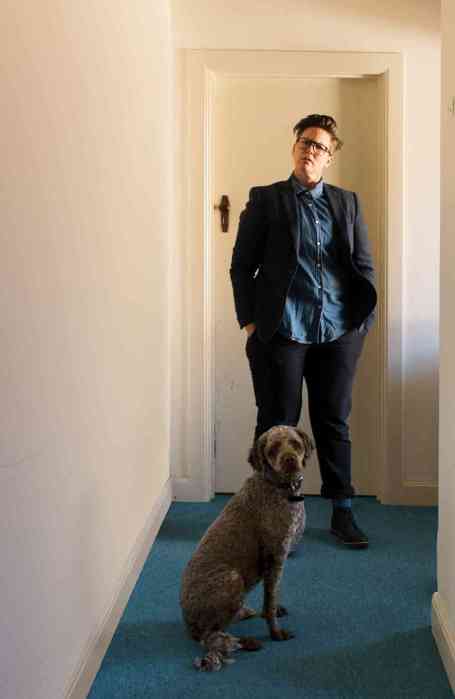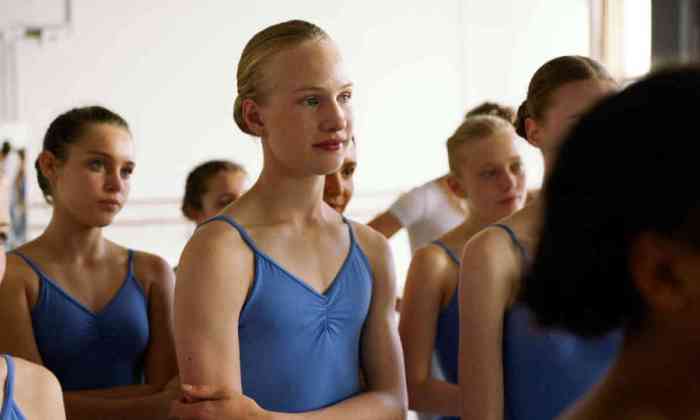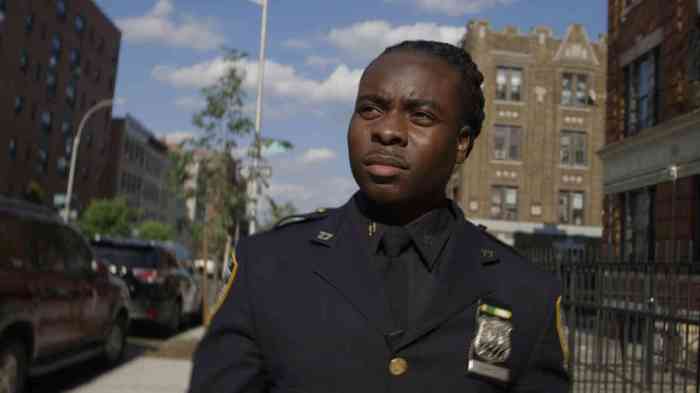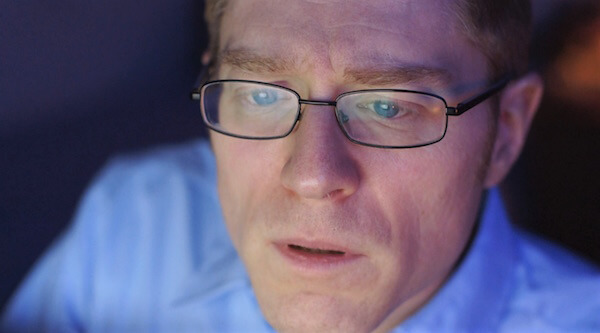BY KELLY COGSWELL | Thanks to that devil Netflix, I’m now hooked on “Orphan Black,” the sci-fi series in which lays a slew of cloned women who are caught between the evil scientists who created and study them and the religious fanatics who want to see them all dead. You could read the whole show as a deconstruction of identity, or a smorgasbord of it, with plenty of nature and nurture jokes thrown in.
Acting on a high level like this always raises questions about just what a person is. Do we have some essential and immutable kernel of self that finds expression in how we speak and move and how we choose to live our lives, or is this thing we perceive as “I” an arbitrary collection of ticks that we’ve picked up from the world around us that practically anybody can mimic, if not sustain?
Comics do it all the time with spot-on impersonations. In “Orphan Black,” Maslany transforms herself so persuasively into a dozen or so separate clone characters, sometimes even going all Shakespearean in pretending to be one clone pretending to be another, that she’s an argument for the internal diversity of humans, our capacity to adapt.
A Dyke Abroad
Technology obviously plays an important role in making all her characters seem simultaneously real, but the key is the acting that is done without benefit of the fancy make-up and prosthetics that we’ve all seen in movies from “The Nutty Professor” to” The Saint.” With just a pair of glasses, a headband, or a wig, or nothing at all, she changes the body language and accent, but goes beyond these obvious tricks to allow the intelligence inside to shift, creating a new personality, a new character without getting so clever you’re pulled out of the show to applaud her craft.
I marveled at a scene in an early episode in Season 1 when British con artist Sarah was meant to visit her young daughter, but asked Canadian Soccer Bitch Alison to stand in. We saw the character Alison seize on Sarah’s externals like many actors would do, embracing her lower class British accent and tougher, street-wise gestures, only failing to erase her own fakely open expression. To convey both characters at once, the actor Maslany carefully allowed Alison’s character to peek out of Sarah’s usually skeptical eyes and to reveal herself around the mouth.
Afterwards I wondered about the relationship of our bodies and brains. How one shapes the other. How life shapes us. How society does. From the acceptable expressions on our faces to the ways we dress and walk.
Maslany of course is an exceptional actor. But all of us are malleable to some degree. We don’t just “perform” gender, but class and race, as well. Culture, nationality. We go to work speaking Standard White English in Standard White America, but at home suddenly become more black, or Latino, or Asian, or white, rural working class with a ferocious twang. We code-switch, shifting word choice, accent, even tone of voice not to mention our clothes. Of course, some of us become more butch. Some more femme. Here in France, I’ve discovered that I keep my face more still like Parisians do. I sit differently on the subway. Speaking a different language, even my gestures change. I become some other version of my self that seems equally true.
I think this malleability is why we like to play so much as kids, trying on roles with Halloween costumes and our parents’ clothes. Bit by bit we construct something we can live with, a premise that “Orphan Black” plays with, joking about the fake happiness of the suburbs, but also dressing up Sarah in Clash T-shirts for a little rock and roll street cred. In fact, the show is also a kind of mediation on acting and identity, and socially imposed norms. The clones weren’t just created in a lab, but by the languages and neighborhoods and societies that shaped them. And of course, their own choices, as well.
I consider it a reminder to be wary of any homo or trans activist claiming that they deserve rights because they were born that way. Because the only true response is, kind of. “You were kind of born that way, but so what? We all contort ourselves to survive.” The only argument about rights that really persuades has to do with that old-fashioned thing, democracy. It doesn’t matter who I sleep with, what clothes I wear on what body. Either we’re equal and we’re free, or we’re not.
And yes, I know, that by asserting our “fluidity,” I seem to be contradicting my usual pitch to accept intransigent labels like lesbian. But I haven’t changed my mind. Organizing for social change requires broad strokes and words large enough to make multitudes visible. More than one thing can be true.
Kelly Cogswell is the author of “Eating Fire: My Life as a Lesbian Avenger,” from the University of Minnesota Press.


































